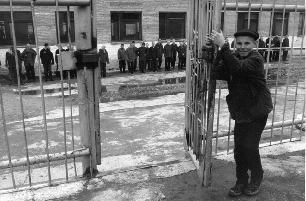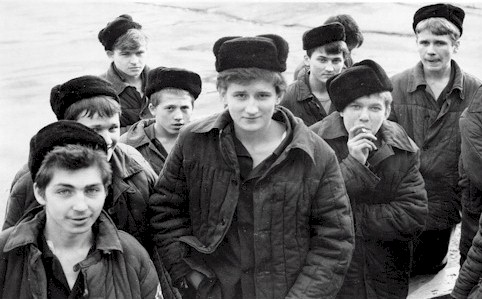 Most young offenders cannot afford to hire a skilled defense lawyer. They do
not know their rights, do not understand the meaning of legal procedures, and do not know
how to write a complaint or any other document relating their cases. Girls file almost no
complaints about conditions of detention or violations of their rights to state oversight
bodies or non-governmental organizations because, according to informal rules among
prisoners, this is severely punished by other inmates. Most young offenders cannot afford to hire a skilled defense lawyer. They do
not know their rights, do not understand the meaning of legal procedures, and do not know
how to write a complaint or any other document relating their cases. Girls file almost no
complaints about conditions of detention or violations of their rights to state oversight
bodies or non-governmental organizations because, according to informal rules among
prisoners, this is severely punished by other inmates.
The number of staff working with minors is inadequate. When there is no proper control
over them, violence and suicide attempts rise.
In recent years, cases of violence were recorded not only in boys’ cells, but in
girls’ as well.
There is a strict hierarchy among juvenile inmates: there many so called
“disgraced” boys (those who were raped), who have very low status and are constantly
subjected to violence in forms difficult for an adult to imagine. They are beaten, not
allowed to sleep, raped, compelled to eat cockroaches, excrement; their tormentors burn
out hair on their heads, make tattoos (over an upper lip or on a hand) indicating their
disgraceful status. These offenders do the grunt work in cells.
 It
is almost impossible to avoid violence and torment in juvenile cells and colonies, because
according to the informal code of conduct inherent to this groups of prisoners, asking the
prison administration for help is a disgraceful act; complainers are tormented in other
cells, during transportation to a colony, and in the colony. It
is almost impossible to avoid violence and torment in juvenile cells and colonies, because
according to the informal code of conduct inherent to this groups of prisoners, asking the
prison administration for help is a disgraceful act; complainers are tormented in other
cells, during transportation to a colony, and in the colony.
The administration know about these problems, but officially reject them. Juveniles
subjected to violence receive no help from a psychologist, a psychiatrist, even if the
administration is informed about such incidents. In the opinion of many respondents (ex-
political and other prisoners) in Russian penitentiary institutions it would be better to
hold teenagers together with adults. Prison staff working with this category of prisoners
also share (unofficially) this point of view.
|